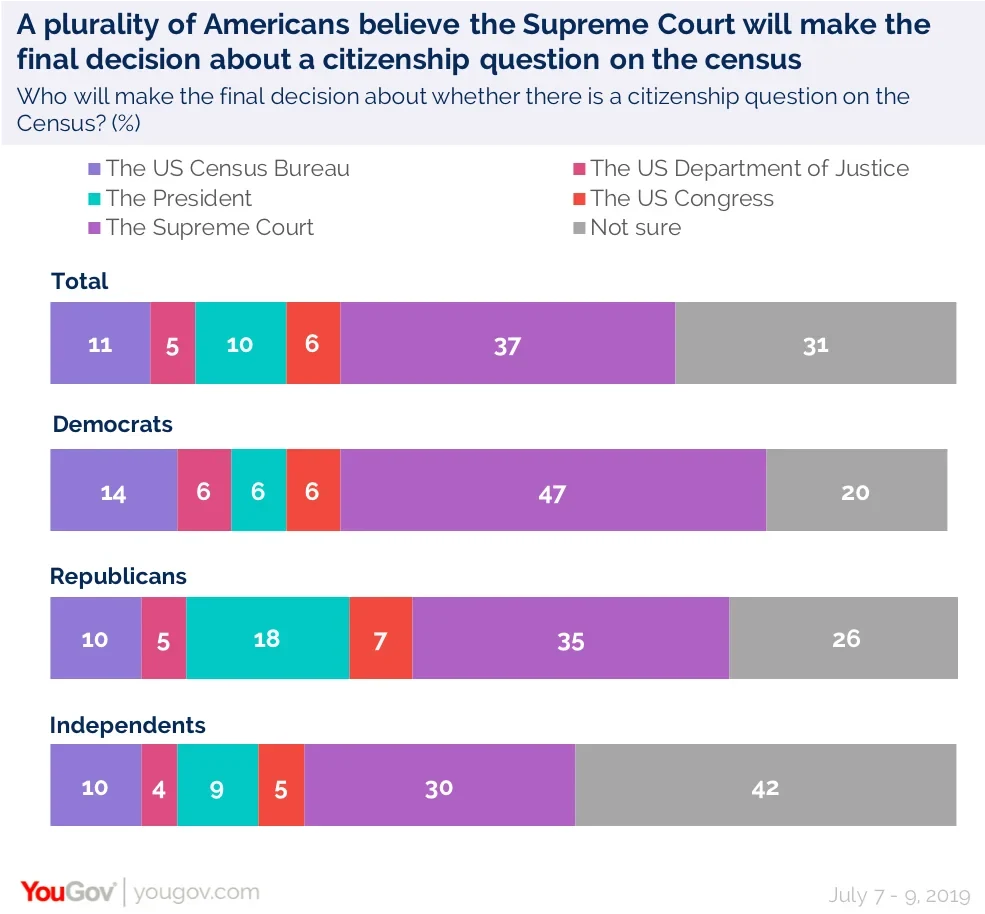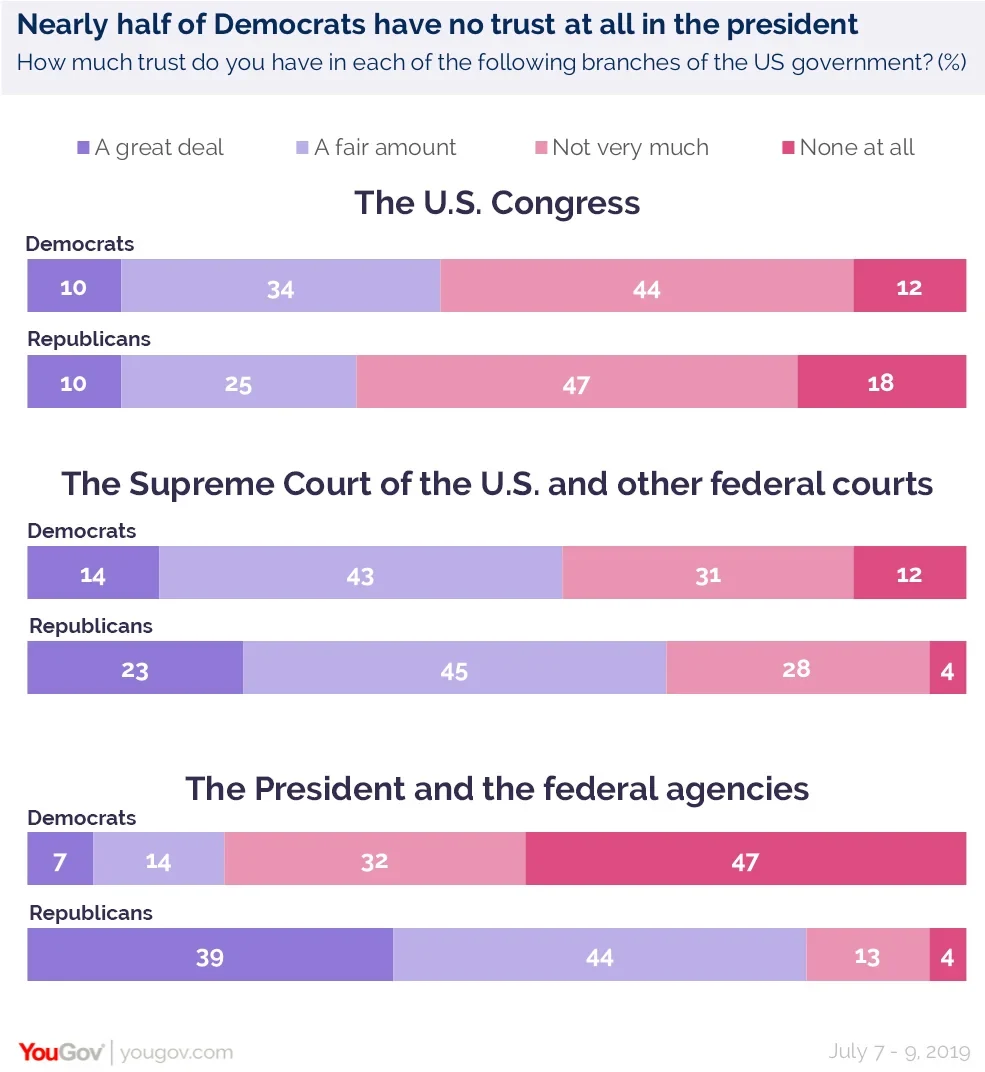Americans aren’t sure who will make the final decision about whether or not the 2020 Census will include a citizenship question. Just over a third in the latest Economist/YouGov Poll say the Supreme Court will decide, but one in 10 say the president will. Another 11% name the Census Bureau itself as the decision maker.

The Supreme Court is seen as the arbiter of what the Constitution means in general by 61% of Americans. One in 10 believes the president and the Executive Branch make that determination. Democrats are more likely than Republicans to say this is a judicial decision, while Republicans are about equally likely to attribute the final decision to the president or to part of the Executive Branch as to the judiciary.
For Democrats, the courts are the most trusted of the three branches of government (57% say they trust them at least a fair amount); two-thirds of Republicans agree. But more than eight in 10 Republicans give the president and the federal agencies at least a fair amount of trust, something only 21% of Democrats do.

Neither party particularly trusts Congress (although Democrats, who now control the House of Representatives, are a little more likely to trust that branch. When asked directly which branch of government they trust the most, nearly half of Republicans name the Executive, while more than a third of Democrats choose the Judiciary.
Pluralities of both parties agree that the three branches are equally important, though more Republicans than Democrats think the president is more important—and more powerful.
Most Americans know some facts about the Supreme Court: two-thirds are aware that Supreme Court justices serve for life, and that there are nine Supreme Court justices (the questions were asked in multiple-choice formats). A smaller majority, 57%, knows that the president appoints federal judges, but only 37% correctly noted that the Senate confirms those appointments (nearly one in four said the both House of Congress participate in confirmation of judges).
The latest executive-judicial disagreement is about asking the citizenship question on the 2020 Census. A majority of Americans don’t have a problem with asking it, though opinion changes based on party identification and on knowledge. Support for adding a citizenship question declines with education.








